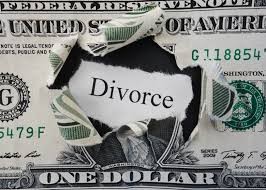
“They that will be rich fell into temptation and a snare, and into many foolish and hurtful desires, which drown men in destruction and perdition.”
1 Timothy 6:9
1. HOW innumerable are the ill consequences which have followed from men’s not knowing, or not considering, this great truth! And how few are there even in the Christian world, that either know or duly consider it! Yea. how small is the number of those, even among real Christians, who understand and lay it to heart! Most of these too pass it very lightly over, scarce remembering there is such a text in the Bible. And many put such a construction upon it, as makes it of no manner of effect. “They that will be rich,” say they, “that is, will be rich at all events; who will be rich, right or wrong; that are resolved to carry their point, to compass this end, whatever means they use to attain it; ‘they fall into temptation’ and into all the evils enumerated by the Apostle.” But truly if this were all the meaning of the text, it might as well have been out of the Bible.
2. This is so far from being the whole meaning of the text, that it is no part of its meaning. The Apostle does not here speak of gaining riches unjustly, but of quite another thing: His words are to be taken in their plain obvious sense, without any restriction or qualification whatsoever. St. Paul does not say, “They that will be rich by evil means, by theft, robbery, oppression, or extortion; “they that will be rich by fraud; or dishonest art;” but simply, “They that will be rich:” These, allowing, supposing the means they use to be ever so innocent, “fall into temptation and a snare, and into many foolish and hurtful desires, which drown men in destruction and perdition.”

3. But who believes that? Who receives it as the truth of God? Who is deeply convinced of it? Who preaches this; Great is the company of preachers at this day, regular and irregular; but who of them all, openly and explicitly, preaches this strange doctrine? It is the keen observation of a great man, “The pulpit is the preacher’s strong-hold.” But who even in his stronghold has the courage to declare so unfashionable a truth? I do not remember that in threescore years I have heard one sermon preached upon this subject. And what author, within the same term, has declared it from the press? at least, in the English tongue? I do not know one. I have neither seen nor heard of any such author. I have seen two or three who just touch upon it; but none that treats of it professedly. I have myself frequently touched upon it in preaching, and twice in what I have published to the world: Once in explaining our Lord’s Sermon on the Mount, and once in the discourse on the “Mammon of unrighteousness;” but I have never yet either published or preached any sermon expressly upon the subject. It is high time I should; — that I should at length speak as strongly and explicitly as I can, in order to leave a full and clear testimony behind me, whenever it pleases God to call me hence.
4. O that God would give me to speak right and forcible words; and you to receive them in honest and humble hearts! Let it not be said, “They sit before thee as my people, and they hear thy words; but they will not do them. Thou art unto them as one that hath a pleasant voice, and can play well on an instrument; for they hear thy words, but do them not!” O that ye may “not be forgetful hearers, but doers of the word,” that ye may be “blessed in your Need!” In this hope I shall endeavor,
To explain the Apostle’s words.
But, O! “who is sufficient for these things?” Who is able to stem the general torrent? to combat all the prejudices, not only of the vulgar, but of the learned and the religious world? Yet nothing is too hard for God! Still his grace is sufficient for us. In his name then, and by his strength, I will endeavor
To explain the words of the Apostle…
1. And, First, let us consider, what it is to be rich. What does the Apostle mean by this expression? The preceding verse fixes the meaning of that: “Having food and raiment,” (literally coverings; for the word includes lodging as well as clothes,) “let us be there with content.” “But they that will be rich;” that is, who will have more than these; more than food and coverings. It plainly follows, what ever is more than these is, in the sense of the Apostle, riches; whatever is above the plain necessaries, or at most conveniences, of life. Whoever has sufficient food to eat, and raiment to put on, with a place where to lay his head, and something over, is rich.



2. Let us consider, Secondly, What is implied in that expression, “They that will be rich?” And does not this imply, First, they that desire to be rich, to have more than food and coverings; they that seriously and deliberately desire more than food to eat, and raiment to put on, and a place where to lay their head, more than the plain necessaries and conveniences of life? All, at least, who allow themselves in this desire, who see no harm in it, desire to be rich.
3. And so do, Secondly, all those that calmly, deliberately, and of set purpose, endeavor after more than food and coverings; that aim at and endeavor after, not only so much worldly substance as will procure them the necessaries and conveniences of life, but more than this, whether to lay it up, or lay it out in superfluities. All these undeniably prove their “desire to be rich,” by their endeavors after it.
4. Must we not, Thirdly, rank among those that desire to be rich, all that, in fact, “lay up treasures on earth?” a thing as expressly and clearly forbidden by our Lord, as either adultery or murder. It is allowed,
(1.) That we are to provide necessaries and conveniences for those of our own household:
(2.) That men in business are to lay up as much as is necessary for the carrying on of that business:
(3.) That we are to leave our children what will supply them with necessaries and conveniences after we have left the world: And,.
(4.) That we are to provide things honest in the sight of all men, so as to “owe no man anything:” But to lay up any more, when this is done, is what your Lord has flatly forbidden. When it is calmly and deliberately done, it is a clear proof of our desiring to be rich. And thus to lay up money is no more consistent with a good conscience, than to throw it into the sea.
5. We must rank among them, Fourthly, all who possess more. of this world’s goods, than they use according to the will of the Donor: I should rather say, of the Proprietor; for he only lends them to us as Stewards; reserving the property of them to himself. And, indeed, he cannot possibly do other wise, seeing they are the work of his hands; he is, and must be, the possessor of heaven and earth. This is his unalienable right; a right he cannot divest himself of. And together with that portion of his goods which he hath lodged in our hands, he has delivered to us a writing, specifying the purposes for which he has entrusted us with them. It; therefore, we keep more of them in our hands than is necessary for the preceding purposes, we certainly fill under the charge of “desiring to be rich:” Over and above, we are guilty of burying our Lord’s talent in the earth; and on that account are liable to be pronounced wicked, because unprofitable, servants.
6. Under this imputation of “desiring to be rich,” fall, Fifthly, all “lovers of money.” The word properly means, those that delight in money; those that take unpleasure in it; those that seek their happiness therein; that brood over their gold or silver, bills or bonds. Such was the man described by the fine Roman painter, who broke out in that natural soliloquy: — Populus me sibilat, al mihi plaudo Ipse domi simul ac nummos contemplor in arca.
If there are any vices which are not natural to man, I should imagine this is one; as money of itself does not seem to gratify any natural desire or appetite of the human mind; and as, during an observation of sixty years, I do not remember one instance of a man given up to the love of money, till he had neglected to employ this precious talent according to the will of his Master. After this, sin was punished by sin; and this evil spirit was permitted to enter into him..13
7. But beside this gross sort of covetousness, the love of money, there is a more refined species of covetousness, mentioned by the great Apostle, — pleonexia — which literally means, a desire of having more; more than we have already. And those also come under the denomination of “they that will be rich” It is true that this desire, under proper restrictions, is innocent; nay, commendable. But when it exceeds the bounds, (and how difficult is it not to exceed them!) then it comes under the present censure.
8. But who is able to receive these hard sayings? Who can believe that they are the great truths of God? Not many wise not many noble, not many famed for learning; none, indeed, who are not taught of God, And who are they whom God teaches? Let our Lord answer: “If any man be willing to do His will, he shall know of the doctrine whether it be of God.” Those who are otherwise minded will be so far from receiving, it, that they will not be able to understand it.
Two as sensible men as most in England sat down together, some time since, to read over and consider that plain discourse on, “Lay not up for yourselves treasures upon earth.” After much deep considerations one of them broke out, “Positively, I cannot understand it. Pray do yet understand it, Mr. L.?” Mr. L. honestly replied, “Indeed, not I. I cannot conceive what Mr. W. means. I can make nothing at all of it.” So utterly blind is our natural understanding touching the truth of God!
9. Having explained the former part of the text, “They that will be rich,” and pointed out, in the clearest manner I could, the persons spoken of; I will now endeavor, God being my helper, to explain what is spoken of them: “They fall into temptation and a snare, and into many foolish and hurtful desires, which drown men in destruction and perdition.” “They fall into temptation.” This seems to mean much more than simply, they are tempted. They enter into the temptation: They fall plump down into it. The waves of it compass them about, and cover them all over. Of those who thus enter into temptation, very few escape out of it. And the few that do are sorely scorched by it, though not utterly consumed. If they escape at all, it is with the skin of their teeth, and with deep wounds that are not easily healed.
10. They fall, Secondly, into “a snare,” the snare of the devil, which he hath purposely set in their way. I believe the Greek word properly means a gin, a steel trap, which shows no appearance of danger. But as soon as any creature touches the spring, it suddenly closes; and either crushes its bones in pieces, or consigns it to inevitable ruin.

11. They fall, Thirdly, “into many foolish and hurtful desires;” anohtouv, — silly, senseless fantastic; as contrary to reason, to sound understanding, as they are to religion: Hurtful, both to body and soul, tending to weaken, yea, destroy, every gracious and heavenly temper: Destructive of that faith which is of the operation of God; of that hope which is full of immortality; of love to God and to our neighbor, and of every good word and work.
12. But what desires are these? This is a most important question, and deserves the deepest consideration. In general, they may all be summed up in one, the desiring happiness out of God. This includes directly, or remotely, every foolish and hurtful desire. St. Paul expresses it by “loving the creature more than the Creator;” and by being “lovers of pleasure more than lovers of God.” In particular, they are, (to use the exact and beautiful enumeration of St. John,) “the desire of the flesh, the desire of the eyes, and the pride of life;” all of which, the desire of riches naturally tends both to beget and to increase.
13. “The desire of the flesh” is generally understood in far too narrow a meaning. It does not, as is commonly supposed, refer to one of the senses only; but takes in all the pleasures of sense, the gratification of any of the outward senses. It has reference to the taste in particular. How many thousands do we find at this day, in whom the ruling principle is, the desire to enlarge the pleasure of tasting! Perhaps they do not gratify this desire in a gross manner, so as to incur the imputation of intemperance; much less so as to violate health or impair their understanding by gluttony or drunkenness: But they live in a genteel, regular sensuality; in an elegant epicurism, which does not hurt the body, but only destroys the soul; keeping it at a distance from all true religion.
14. Experience shows that the imagination is gratified chiefly by means of the eye: Therefore, “The desire of the eyes,” in its natural sense, is, the desiring and seeking happiness in gratifying the imagination. Now, the imagination is gratified either by grandeur, by beauty, or by novelty: Chiefly by the last; for neither grand nor beautiful objects please any longer than they are new.
15. Seeking happiness in learning, of whatever kind, falls under “the desire of the eyes;” whether it be in history, languages, poetry, or any branch of natural or experimental philosophy: Yea, we must include the several kinds of learning, such as Geometry, Algebra, and Metaphysics. For if our supreme delight be in any of these, we are herein gratifying “the desire of the eyes.”
16. “The pride of life” (whatever else that very uncommon expression, halazoneiz tou biou, may mean) seems to imply chiefly, the desire of honor; of the esteem, admiration, and applause of men; as nothing more directly tends both to beget and cherish pride than the honor that cometh of men. And as riches attract much admiration, and occasion much applause, they proportionally minister food for pride, and so may also be referred to this head.
17. Desire of ease is another of these foolish and hurtful desires; desire of avoiding every cross, every degree of trouble, danger, difficulty; a desire of slumbering out life, and going to heaven (as the vulgar say) upon a feather-bed. Every one may observe how riches first beget, and then confirm and increase, this desire, making men more and more soft and delicate; more unwilling, and indeed more unable, to “take up their cross daily;” to “endure hardship as good soldiers of Jesus Christ,” and to “take the kingdom of heaven by violence.”
18. Riches, either desired or possessed, naturally lead to some or other of these foolish and hurtful desires; and, by affording the means of gratifying them all, naturally tend to increase them. And there is a near connection between unholy desires, and every other unholy passion and temper. We easily pass from these to pride, anger, bitterness, envy, malice, revengefulness; to an headstrong, unadvisable, unreprovable spirit: Indeed, to every temper that is earthly, sensual, or devilish. All these, the desire or possession of riches naturally tends to create, strengthen, and increase.






19. And by so doing, in the same proportion as they prevail, they “pierce men through with many sorrows;” sorrows from remorse, from a guilty conscience; sorrows flowing from all the evil tempers which they inspire or increase; sorrows inseparable from those desires themselves, as every unholy desire is an uneasy desire; and sorrows from the contrariety of those desired to each other, whence it is impossible to gratify them all. And, in the end; “they drown” the body in pain, disease, “destruction,” and the soul in everlasting “perdition.”
~ Word from editor~
If you find yourself in the snare of loving money, or delighting in it, we would like to urge you to repent and choose to partake of the true riches that are in Christ Jesus instead. Allow the Word and Spirit of God to reveal to you the beauty of holiness that can be found in Jesus Christ and the ugliness and snare of sin… You cannot follow God and Money… You must make a choice. Choosing to live by faith in obedience to our Lord Jesus Christ will lead to life and peace. Choosing to love money will sometimes bring a satisfaction for a season, but the end is death….
Learn from the Biblical account of the rich man and Lazarus:
“There was a certain rich man, which was clothed in purple and fine linen, and fared sumptuously every day: And there was a certain beggar named Lazarus, which was laid at his gate, full of sores, And desiring to be fed with the crumbs which fell from the rich man’s table: moreover the dogs came and licked his sores.
And it came to pass, that the beggar died, and was carried by the angels into Abraham’s bosom: the rich man also died, and was buried; And in hell he lift up his eyes, being in torments, and seeth Abraham afar off, and Lazarus in his bosom. And he cried and said, Father Abraham, have mercy on me, and send Lazarus, that he may dip the tip of his finger in water, and cool my tongue; for I am tormented in this flame.
But Abraham said, Son, remember that thou in thy lifetime receivedst thy good things, and likewise Lazarus evil things: but now he is comforted, and thou art tormented.“ Luke 16:19-25
Jesus said,
“Lay not up for yourselves treasures upon earth, where moth and rust doth corrupt, and where thieves break through and steal: But lay up for yourselves treasures in heaven, where neither moth nor rust doth corrupt, and where thieves do not break through nor steal:” Matthew 6:19-20








